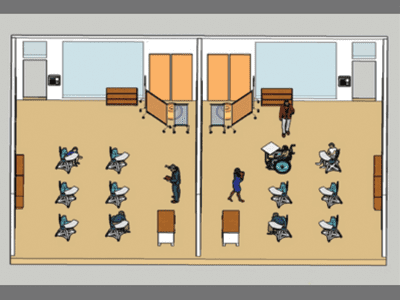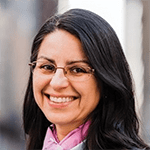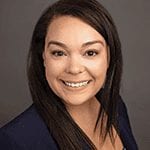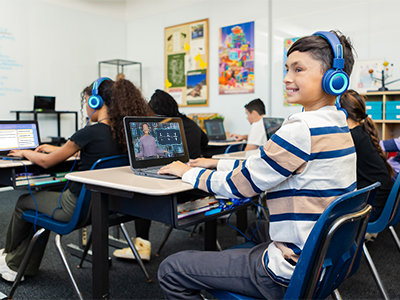Join live or receive a link to the recording and earn a CE certificate

- This event has passed.
Reopening Schools: A Scheduling Map for Educators
Friday, July 17, 2020 @ 12:00 pm - 1:00 pm EDT

Presented by Eric Tucker, Executive Director, Brooklyn Laboratory Charter Schools, NY; Bennison (Bb) Ntsakey, Director of Academics, Brooklyn Laboratory Charter Schools, NY; Serena Losonczy, AIA, Associate Partner, PBDW Architects; and Chandler Rowland, Consultant, Public Impact
Hosted by Barbara Pape, Policy and Communications Director, Learner Variability Project, Digital Promise
Hosted by Digital Promise
Sponsored by Brooklyn Laboratory Charter Schools
Get a CE Certificate for this edWebinar Learn more
In this edWebinar, learn about the Back to School Instructional Program Scheduling Map. The map includes multiple ideas for addressing special education compliance, staffing teams, and student schedules given health, safety, and social distancing requirements while prioritizing equity.
Given social distancing and limited in-person class time, it emphasizes practical questions and approaches, including:
- How can we ensure decisions regarding how to educate them while abiding by health and safety guidelines are focused on meeting the needs of each student, particularly students with disabilities?
- How might we ensure that students with disabilities are provided with high-quality supports and services?
- How can we put students’ needs at the forefront to ensure we have the right staff specializations, spaces, and modes of learning available to educate students with disabilities?
- When schools reopen, how might we staff classrooms and organize schedules to provide excellent teaching for all students—including students with disabilities—and great support for teachers?
- What are the optimal staffing levels given a school’s student population? How can schools make time for collaboration, planning, and leadership?
- Which types of learning are best suited for which delivery format?
The goal is to make the return to school better for all students. The Instructional Program Scheduling Map provides a framework to support clear communication between administrators, educators, families, and scholars so that school communities can work collaboratively and inclusively to promote safety, health, well-being, and learning when school reopens this fall.
The Scheduling Map, which reflects insights and addresses early concerns from public health experts, students, teachers, parents, guardians, and schools, was developed through a collaboration with InnovateEDU and several partners: Dezudio, PBDW/EdTogether, the National Center for Special Education in Charter Schools (NCSECS), Public Impact, TNTP, and Mary Lou Fulton Teachers College at ASU.
This recorded edWebinar will be of interest to preK through high school teachers and school and district leaders.

Eric Tucker is Co-founder and Executive Director at Brooklyn Laboratory Charter School (LAB). He was the director at the Federal Reserve Bank of New York. As Managing Director of Catalyst Strategy, Eric led school design and implementation work for clients including Ascend, Excel, and Building Excellent Schools. As CAO and Executive Director of the National Association for Urban Debate Leagues, he grew a national network serving 450 urban schools. Eric taught argumentation and debate in Providence and Chicago. He has a doctorate from Oxford University.




Barbara Pape is the policy and communications director for the Learner Variability Project at Digital Promise. She has 20 years’ experience in strategic communications, writing, and policy analysis, primarily in education. Previously, she served as the executive producer of the award-winning Teaching & Learning conference, sponsored by the National Board for Professional Teaching Standards, where she developed content and oversaw outreach and communications. As a writer, she has written for numerous publications, including Harvard University, the National Education Goals Panel (U.S. Department of Education) and Parents magazine. Barbara also served as editor and publisher of the first electronically delivered education newsletter, the Daily Report Card. She served on the Advisory Board of the Kennedy Center’s Intersection of Arts Education and Special Education Committee, serves as a judge for the Miliken-Penn Graduate School of Education Business Plan competition, and is on the Boards at the Education Writers Association and Potentia. She earned an Ed.M. at Harvard University’s Graduate School of Education and launched her career as a middle school language arts teacher.
Join the Personalize Learning for Learner Variability community to network with educators, participate in online discussions, receive invitations to upcoming edWebinars, and view recordings of previous programs to earn CE certificates.







